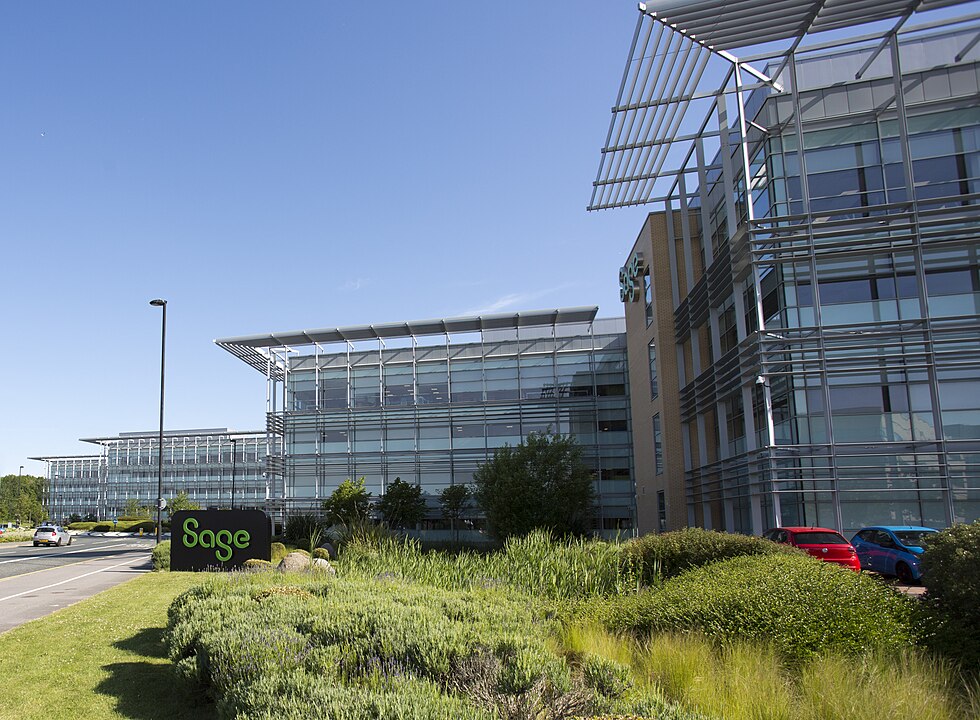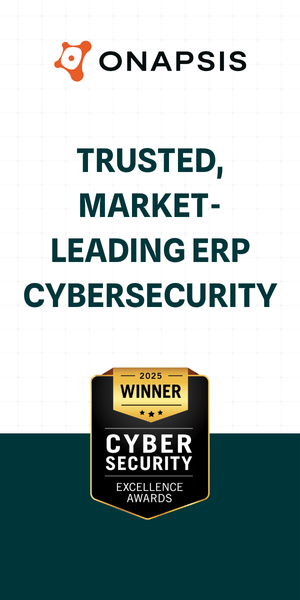When Sneakers released in 1992, Robert Redford gave film buffs a glimpse of what the future might hold for the tech world. The core plot? Quantum computers that were used to decode encrypted information. While that future is still some years away, it is in the not-so-distant future.
Quantum computing, with its mind-bending ability to solve problems, is still deemed impossible, but promises breakthroughs in medicine, materials science, and artificial intelligence (AI). However, it also carries a more ominous potential: the power to render today’s encryption methods obsolete—like the ones in Sneakers—effectively unlocking every secure digital vault on the planet.
For most business leaders, this quantum horizon seems like the stuff of science fiction, a problem for another decade. But for Walid Abu Hadba, Chief Product Officer at Sage, preparing for that future means winning the battle of the present.
The Quantum Horizon
Abu Hadba views quantum computing not as a direct threat to AI, but as a powerful—and potentially dangerous—accelerator.
“From an AI point of view, [quantum computing] is just going to accelerate it allowing us to do massive amounts of AI much, much faster,” he notes. The real, and more immediate, danger lies elsewhere. “My biggest fear of quantum computing right now is encryption models.”
He explains that the security models that protect virtually all digital information today, from banking transactions to state secrets, could be rendered useless by a powerful quantum computer. “I think we’re going to transition from traditional RSA computing security models and encryption to quantum encryption models,” he predicts.
Having previously worked at ANSYS, a leader in engineering simulation, Abu Hadba is deeply familiar with the underlying workings of quantum mechanics. He expresses faith that the industry will develop new, quantum-resistant algorithms, but the race is on.
So, when will this shift become a practical reality for businesses? Abu Hadba is pragmatic about the timeline. “Not in the next 10 years,” he says, before clarifying. “I believe five years from now quantum computing will be massively more advanced than we think it is at present. It’s not 50 years away, but it’s not going to be five months either.”
The bottleneck isn’t just building a stable, room-temperature quantum computer. It’s the entire ecosystem. “Getting the quantum computer ready is one thing,” he cautions. “Getting the algorithms, getting the tooling, getting the operating systems, getting the applications… it’s a completely different way of writing an application. How many people know how to do that today? You could count them on a few hands around the globe.”
From his vantage point, the path to a quantum-resilient future is paved with the same principles needed to solve today’s most pressing business challenges: Trust, accuracy, and putting a new kind of AI directly into the hands of small and medium businesses (SMBs), a user base long considered laggards in tech adoption.
“My biggest fear of quantum computing right now is encryption models.”
— Walid Abu Hadba, CPO, Sage
Why Business Isn’t a Chatbot
While quantum computing is a challenge for the future, Abu Hadba is championing a different kind of revolution today—one that is quieter, more pragmatic, and infinitely more critical for the backbone of the economy.
This morning, you might have asked a consumer AI to summarize your emails or check the weather. The response was fast, helpful, and maybe even 70% accurate. For a consumer, that’s a useful convenience. But for a business closing its books? A 70% accuracy would be a catastrophic failure.
“[Business] is not a place where you allow hallucinations,” Abu Hadba states, his words cutting through the noise of AI hype. “You cannot say, ‘One plus one equals two, but there’s a possibility of one plus one equals three as well.’ It doesn’t work in our space.”
This is the core challenge Sage has been quietly working on for years, long before AI and agentic AI became mainstream buzzwords. As Abu Hadba points out, for Sage customers, AI is about three non-negotiable pillars:
- Pinpoint Accuracy: The numbers must be right, every single time.
- Radical Trust: Users must trust not just the answer, but the process that delivered it.
- Actionable Insight: The AI tool, agentic or otherwise, must provide massive time savings and deep insights that are fully auditable.
“Think about preparing somebody’s taxes,” Abu Hadba explains. “You can’t have a 70% likelihood of being correct. It must be accurate, you must save time, and you must give insights that are auditable.” This philosophy is now manifesting in Sage’s new generation of AI-powered tools.
Surprisingly, the earliest and most enthusiastic adopters of AI tools like agentic AI aren’t the Fortune 500 companies with massive IT departments. In a fascinating reversal of the typical tech adoption curve, it’s the SMBs who are leaping ahead.
“It’s kind of weird, because right now, SMBs are taking the lead in agentic AI,” Abu Hadba reveals. “They beat all the [large] enterprises right now [in agentic AI adoption].”
He argues that large enterprises, shackled by the immense complexity of their legacy systems, are risk-averse. Moreover, the pain of transitioning a sprawling ERP system can take months and carries immense financial liability. “Can you go to Wall Street and say, ‘Well, I missed my earnings because I was transitioning to an agentic AI and I’m not able to close my books?’” he asks rhetorically. “This is an easier transition for SMBs that are not weighed down by those larger commitments. They are more resilient, more experimental. They don’t mind a couple of days of pain to get to the benefits.”
The Fortress of Trust
Still, letting an AI agent handle critical financial tasks requires a monumental level of trust. This is where Abu Hadba believes Sage has created its most significant differentiator. While headlines are filled with concerns over data privacy and AI black boxes, Sage has built its AI on a foundation of user control and transparency.
“The customer is always in control of their data. Sage will not use your data without your permission,” he asserts. But the real game-changer is the auditability. “We log everything. We understand the path that the agent took and how it came to those conclusions.”
He describes a feature that is, for now, unique to Sage: a ‘one-click’ audit trace. With a single click, a user can see the entire decision-making process of the AI agent, what question it formulated, what data source it queried, and how it arrived at the final number.
“It’s not just that the agent says, ‘I got this information from this data source.’ That’s important. But how? How did you formulate the question?” Abu Hadba explains. “Your ability to go and see where we are, how did we get it, and verify whether this is good or bad is at your hands. We may be the only company doing that right now.”
The Playbook for the Future
To navigate these successive waves of technology, Sage has anchored its strategy in a single source of truth: the General Ledger (GL). Abu Hadba is emphatic that Sage is not just a company that uses AI tools but has fundamentally transformed itself into “the AI company for accounting.”
This transformation was enabled by a bold decision years ago to rebuild their products on a single, agile platform. “If you asked me that question three years ago, I would have said, ‘No way, it’s impossible,’” he admits when asked about the pace of innovation. “Now we have 14 products with AI in them. Our goal is for every single product to have AI within the next 18 months.”
He acknowledges that in this new world, pure competitors and pure collaborators no longer exist. Survival depends on “co-opetition,” particularly with giants like Microsoft. “Show me one finance person that does not use Excel,” he laughs. “You want to have a revolution in your company? Forbid Excel from being used and see what happens.”
The strategy is to make Sage the undisputed center of gravity for financial data, the AI-driven GL that other systems and agents from CRMs to Excel must talk to. “At the end of the day, the last thing anybody turns off before they shut down a company is your general ledger,” Abu Hadba says. “We aim to be the source of truth, and the AI source of truth.”
Ultimately, Abu Hadba sees technology not as a force for elimination, but for evolution. “A lot of people are getting into this [idea that] AI is going to eliminate the human side of business. I never believe in that,” he concludes. “There will be some roles that will be eliminated, but there will be other roles that will be created.”
What This Means for ERP Insiders
Agility is the new competitive advantage. SMBs are leading enterprises in AI adoption. For ERP users, especially those in large, complex organizations, this is a critical market signal. As Abu Hadba points out, large enterprises are often shackled by the risk and complexity of their legacy systems. The learning? While large-scale ERP systems provide stability, they can also breed inertia. This trend suggests that waiting for perfect, risk-free AI solutions may leave your organization behind nimbler competitors who are already experimenting and reaping the rewards.
Don’t accept “black box” AI. In financial AI, trust requires a clear audit button. The hype around consumer AI is irrelevant to the world of finance and ERP. Abu Hadba emphasizes that for business applications, AI must be built on “pinpoint accuracy” and “radical trust.” Sage’s strategy materializes this philosophy with a one-click audit trace. As vendors embed more AI into ERP systems, the new standard for excellence should be auditability. Demand tools that offer complete transparency, allowing your team to trust and verify the automated processes. This is the only way to ensure AI is a reliable copilot, not a potential liability.
Your next big security challenge is on the horizon. Quantum computing is the revolution brewing for tomorrow and its most immediate and disruptive impact won’t be on processing speed but on security. A powerful quantum computer could render today’s encryption methods obsolete, effectively unlocking every secure digital vault on the planet including your ERP’s sensitive financial data. This is a future-proofing alert. Long-term strategic planning for your ERP and IT landscape must begin to account for the eventual, and inevitable, shift to quantum-resistant encryption.





